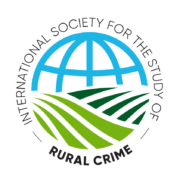Digital components of rural prisoner re-entry
This is the fourth post in a series of short topic snapshots, prepared by Joseph Loades, a research student with the Centre for Rural Criminology at the University of New England.
Individual intervention and social support are a crucial components of prisoner reentry. Prisoners within urban areas face many of the same issues that are faced within rural areas. However, the support services and agencies that are common in urban areas are generally not as plentiful in rural and remote settings. Therefore, case management for reentry into country areas should be tailored on individual needs, not support agencies.
White and Graham (2014) state that:
Reentry is a crucial point of intervention and support on the part of practitioners and agencies, but it is an even more fundamental transition for the offender and the communities they return to … Rehabilitation needs to focus on the whole person … In other words, the centre of attention should not be on this or that program or service, but on the individual who requires our assistance. (pp. 270-271)
 Many prisoners returning to rural and remote settings have drug and alcohol disorders and addiction. In urban areas there are a variety of programs and interventions to guide prisoners through the reentry phase. However, rural areas have certain barriers that include a lack of drug and alcohol services and treatment facilities, staff with less experience and qualifications, spatial inequalities, poor infrastructure, and a lack of transport.
Many prisoners returning to rural and remote settings have drug and alcohol disorders and addiction. In urban areas there are a variety of programs and interventions to guide prisoners through the reentry phase. However, rural areas have certain barriers that include a lack of drug and alcohol services and treatment facilities, staff with less experience and qualifications, spatial inequalities, poor infrastructure, and a lack of transport.
These social and economic boundaries can prevent ex-prisoners from addressing addiction and drug abuse, however, digital technology and telehealth services can now be used to alleviate this problem (Thomas et al., 2020).
Due to the geographical distances ex-prisoners need to travel to attend services, find employment, and create social bonds – which may help in their recovery process – the skills needed to use digital technology are necessary.
Digital technology serves more than one purpose concerning successful prisoner reentry. In a world that is increasingly digital, prisoners can be left behind with regard to finding work, finding accommodation, and a social network of friends (Zivanai, and Mahlangu, 2020). These examples are particularly true in the rural sense, due to spatial inequalities.
 However, many prisoners have been left behind in this digital age, lacking the skills and the means to access digital software, and put them to use. It has been found that prisoners re-entering society generally rely on younger family members when using the internet, due to a ‘Rip-Van-Winkle like experience’ after a period of incarceration, and the lack of digital technology within prisons (Ogbonnaya-Ogburu et al., 2019).
However, many prisoners have been left behind in this digital age, lacking the skills and the means to access digital software, and put them to use. It has been found that prisoners re-entering society generally rely on younger family members when using the internet, due to a ‘Rip-Van-Winkle like experience’ after a period of incarceration, and the lack of digital technology within prisons (Ogbonnaya-Ogburu et al., 2019).
Furthermore, most prisons do not run the programs that prepare inmates for their release into an increasingly digital world.
Ogbonnaya-Ogburu et al. (2019) study concluded that there is a desire by inmates to acquire the skills to use digital technology, and a need for research into the role that digital literacy plays within the process of successful reintegration.
Lack of technological skills are a major challenge of employability and social networking upon reintegration, and the lack of efforts to design and pilot prison-run programs that give prisoners the skills needed to use digital technology can affect successful reintegration into the rural setting.
(Images sourced from pixels.com)
References
Ogbonnaya-Ogburu, I. F., Toyama, K. & Dillahunt, T. R. (2019, May). Towards an effective digital literacy intervention to assist returning citizens with job search. In Proceedings of the 2019 CHI conference on Human factors in computing systems (pp. 1-12). https://par.nsf.gov/servlets/purl/10283436
Thomas, N., Van de Ven, K. & Mulrooney, K. J. (2020). The impact of rurality on opioid-related harms: A systematic review of qualitative research. International Journal of Drug Policy, 85, 102607. https://www.sciencedirect.com/science/article/pii/S0955395919303147
White, R. & Graham, H. (2014). Working with offenders: A guide to the concepts and practices. Routledge. https://www.taylorfrancis.com/books/mono/10.4324/9780203810330/working-offenders-rob-white-hannah-graham
Zivanai, E. & Mahlangu, G. (2022). Digital prison rehabilitation and successful re-entry into a digital society: A systematic literature review on the new reality on prison rehabilitation. Cogent Social Sciences, 8(1), 2116809. https://www.tandfonline.com/doi/pdf/10.1080/23311886.2022.2116809
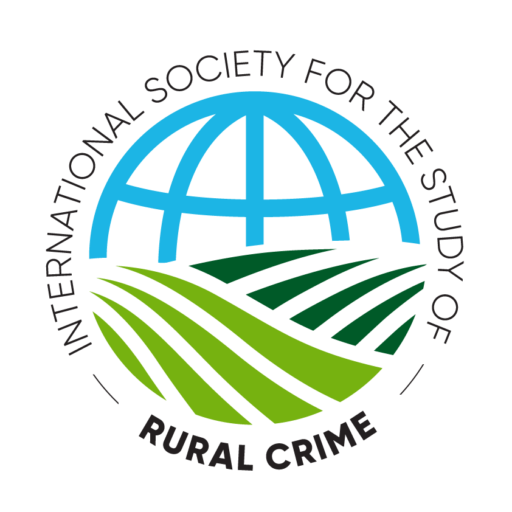
 The access to justice has its issues in both urban and rural communities, however, rural communities suffer inequity at a higher rate. Two of the primary issues include the lack of lawyers and legal personnel that are willing to live in rural areas, and the lack of digital technology in many rural and remote jurisdictions.
The access to justice has its issues in both urban and rural communities, however, rural communities suffer inequity at a higher rate. Two of the primary issues include the lack of lawyers and legal personnel that are willing to live in rural areas, and the lack of digital technology in many rural and remote jurisdictions. Other reasons include the things that make rurality unattractive to young lawyers such as a lack of professional peers, recreation, and culture
Other reasons include the things that make rurality unattractive to young lawyers such as a lack of professional peers, recreation, and culture  The individual victim and offender accessing internet technology can also be problematic. Emailing legal documentation to the court registry, and to lawyers, can be an issue for the lower socioeconomic groups who cannot afford internet access, and those that lack internet coverage due to geographical location. These issues are problematic within the rule of law when attempting to access viable means of justice.
The individual victim and offender accessing internet technology can also be problematic. Emailing legal documentation to the court registry, and to lawyers, can be an issue for the lower socioeconomic groups who cannot afford internet access, and those that lack internet coverage due to geographical location. These issues are problematic within the rule of law when attempting to access viable means of justice. Rural police services experience adversities that differ from urban areas, including the geographical distances that are needed to be covered, lack of government funding, minimal transport infrastructure, high rates of unemployment and poverty of residents, and rising rates of violent crime and property offences compared to non-urban areas.
Rural police services experience adversities that differ from urban areas, including the geographical distances that are needed to be covered, lack of government funding, minimal transport infrastructure, high rates of unemployment and poverty of residents, and rising rates of violent crime and property offences compared to non-urban areas.
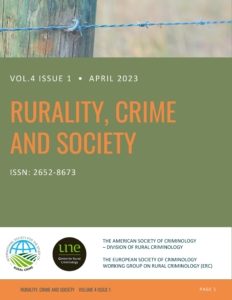
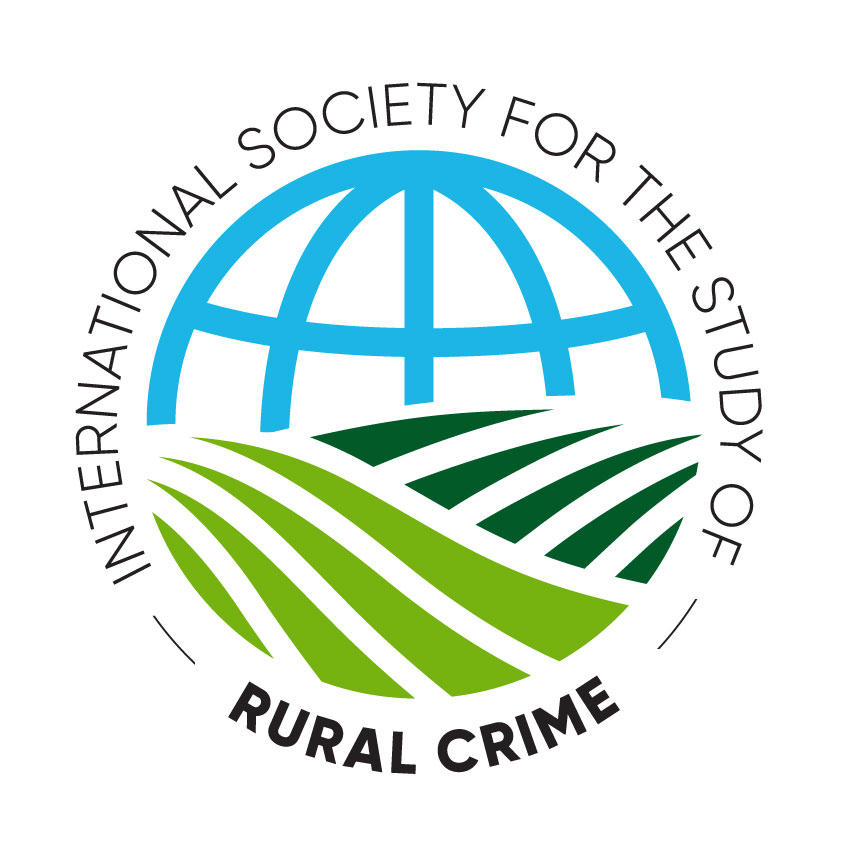

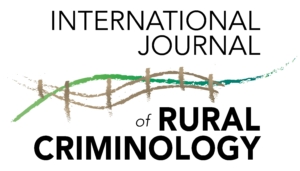 The International Journal of Rural Criminology (IJRC) is a double blind peer-reviewed journal dedicated to publishing empirical and theoretical work related to crime and criminal justice issues associated with diverse rural places of the world. It is fully open access.
The International Journal of Rural Criminology (IJRC) is a double blind peer-reviewed journal dedicated to publishing empirical and theoretical work related to crime and criminal justice issues associated with diverse rural places of the world. It is fully open access.

 rested in rurality, rural crime, rural society – then this is a must read for you!
rested in rurality, rural crime, rural society – then this is a must read for you!

